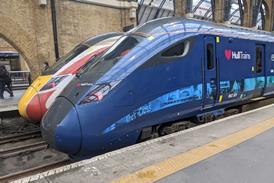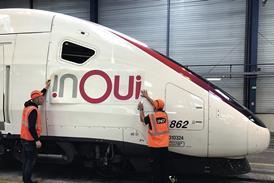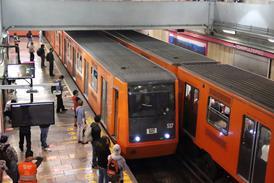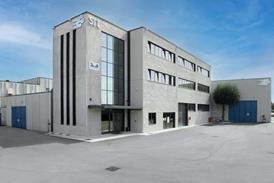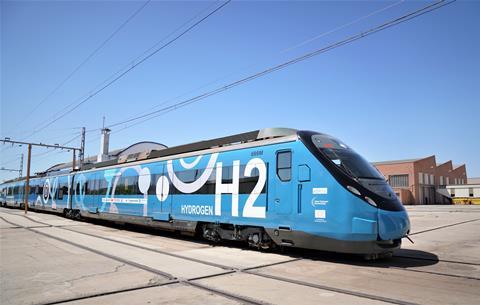
SPAIN: The Fuel Cell Hybrid Power Pack for Rail Applications consortium has begun static testing of an electric multiple-unit which has been fitted with a hydrogen and battery power package to enable catenary-free operation.
The FCH2Rail consortium comprises rolling stock manufacturer CAF, the DLR aerospace research centre, Toyota Motor Europe which has supplied six fuel cell modules, Spanish national operator RENFE, infrastructure managers Adif and Infraestruturas de Portugal, Spain’s Centro Nacional de Hidrógeno research centre which has developed refuelling facilities, and Wabtec’s Stemmann-Technik which is looking at ways to reduce the energy needed for heating, ventilation and air-conditioning and analysing the interaction of the overhead electric and hydrogen systems.
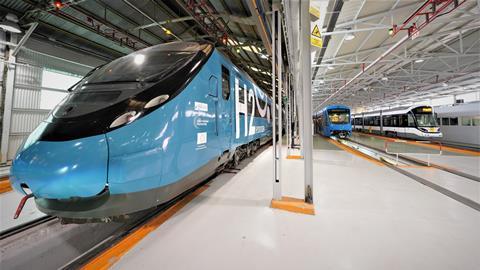
The demonstrator train is a three-car CAF Class 463 Civia commuter electric multiple-unit, which has had the fuel cell and battery integrated with its existing traction systems.
The EMU has been used as a test bed before, having been built as a two-car set branded ‘CAF Investigación’ and used by the manufacturer for research during the early stages of production of Civia units. It then received an intermediate trailer and entered commercial service with RENFE around Zaragoza in 2010. The unit was formally handed back to CAF in September 2021.
Once static testing of the hydrogen systems has been completed at CAF’s Zaragoza plant, the unit will undergo dynamic testing on an external track this summer.
Testing will use ‘green hydrogen’ produced using renewable energy at electricity company Iberdrola’s Barcelona hydrogen plant.
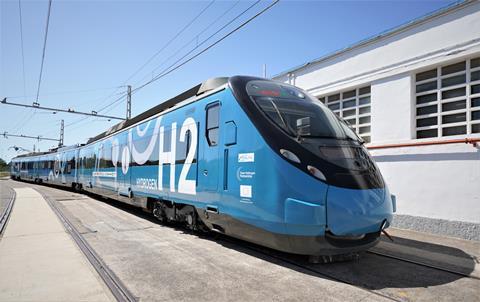
CAF already markets hydrogen buses through its Solaris subsidiary, and said the main challenge in the rail sector is to achieve a competitive alternative to diesel.
The project has a €14m budget, including a €10m grant from European Commission backed Clean Hydrogen Partnership, formerly the Fuel Cells & Hydrogen Joint Undertaking, awarded as part of the Horizon 2020 programme.

